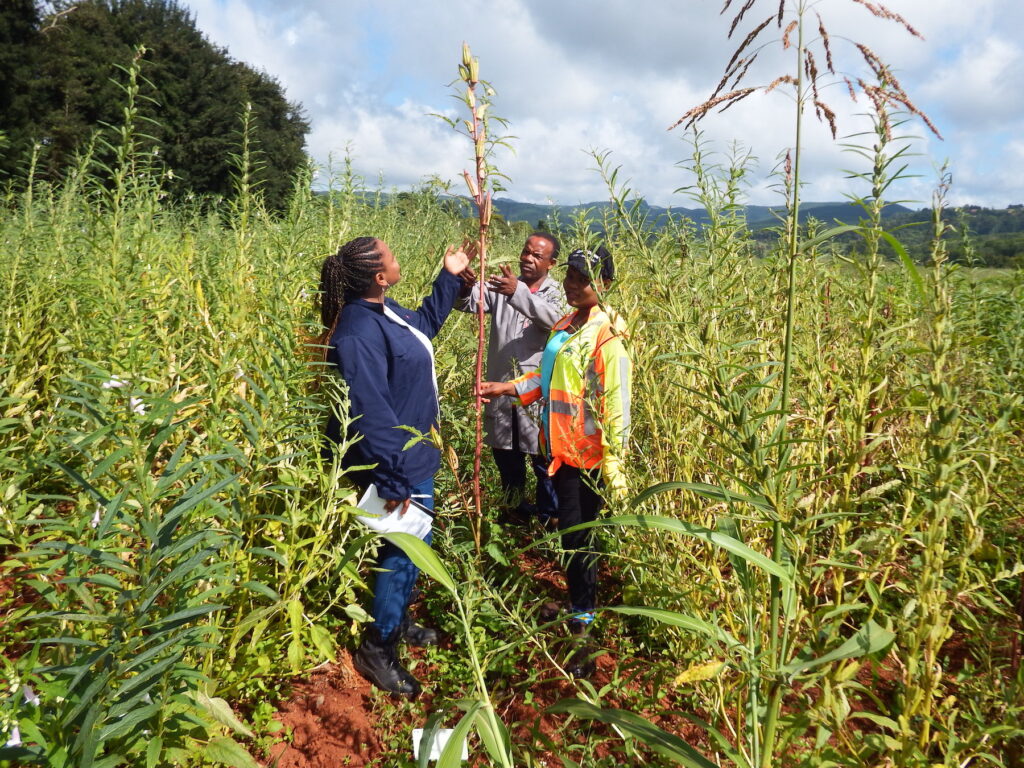The fields of Africa are changing. Rain comes when it should not and fails to appear when it is needed most. Crops wither, not because the soil is poor, but because the seasons themselves are no longer trustworthy. This is not a temporary disruption. It is a permanent shift, and Sub-Saharan Africa must face it head-on.
For generations, farmers relied on predictable cycles. They knew when to plant, when to expect rain, and when to prepare for harvest. Today, those rhythms are broken. Droughts stretch longer than memory can recall. Floods sweep away entire villages and wash away what little has been grown. In Somalia, Kenya, and parts of Ethiopia, years of back-to-back climate shocks have erased whole growing seasons, leaving millions on the edge of famine.
The cruel irony is that Sub-Saharan Africa contributes less than four percent of global greenhouse gas emissions, yet it bears a disproportionate share of the impact. The crisis is not only hotter days; it is shortened growing periods, invasive pests, soil degradation, and declining yields. These forces, working together, are shrinking the food supply just as the population surges toward 1.5 billion.
The consequences are severe. In rural communities, food is life, income, and identity. When the climate disrupts agriculture, it starves futures as much as fields. Families migrate in search of survival. Food prices skyrocket in urban markets, stretching household budgets to the breaking point. Governments are forced into emergency imports, draining scarce foreign reserves. Food insecurity becomes a trigger for broader instability, feeding social unrest and political discontent.
But climate change is not destiny. Sub-Saharan Africa still holds immense potential. The region has the land, the people, and the knowledge to adapt—if action is swift and intentional. The task before us is not merely to produce food, but to build food systems that can survive disruption and bend without breaking.
That begins with climate-smart agriculture. Drought-resistant seeds, solar-powered irrigation, and resilient farming techniques are no longer optional—they are essential. Farmers must have access to real-time weather information so that they can plan, adapt, and protect their harvests. Rural communities need social safety nets that prevent families from sliding into poverty after a failed season. Policymakers must look beyond short-term relief packages and design long-term strategies that put adaptation at the center of national planning.
Financing is critical. International climate funds have pledged billions for adaptation, but very little has reached the smallholder farmers who need it most. Too often, the conversation in global climate negotiations focuses on mitigation—reducing carbon emissions—while ignoring the urgent need to help vulnerable communities adapt. For Africa, where emissions are negligible, adaptation is not a side issue. It is survival.
What makes this even more urgent is the economic ripple effect of inaction. Agriculture contributes up to 35 percent of GDP in many Sub-Saharan African countries and employs more than half the workforce. When harvests fail, it is not just farmers who suffer—it is national economies that contract, governments that lose tax revenues, and businesses that face reduced demand. Food imports surge, draining foreign reserves, and currency values weaken under the strain. Inflation rises, sparking social unrest that can destabilize entire nations. Thus, food resilience must be seen not only as an agricultural priority but as a macroeconomic imperative.
Migration adds another layer. Climate-induced food crises are already pushing people from rural areas into overcrowded cities or across borders, straining social services and fueling competition for scarce jobs. If African governments fail to adapt, migration pressures will increase dramatically, creating both domestic and regional tensions. Addressing food resilience is, therefore, also a peace and security strategy.
Examples of progress exist. In Niger, farmers practicing agroforestry have restored millions of hectares of degraded land, improving both food yields and water retention. In Ethiopia, large-scale watershed management projects have reduced erosion and boosted productivity. In Ghana, some farmer cooperatives are experimenting with solar-powered irrigation and digital platforms to link growers with markets. These stories remind us that resilience is possible when innovation is matched with commitment.
Time, however, is not on our side. Every lost harvest pushes millions deeper into hunger and poverty. Every delay in adaptation locks in greater costs for the future. Africa must not wait for others to act. We must invest in research, technology, and policies that build resilience from the ground up.
Food security is national security. It is health security. It is economic security. The climate clock is ticking, and our food systems must evolve before it runs out.
This article is written by Gideon Amuah, you may reach the author directly by an email view-gideonamuah@gmail.com or send an email to the editor: thenewrepublicgh@gmail.com or info@thenewrepublicgh.com


